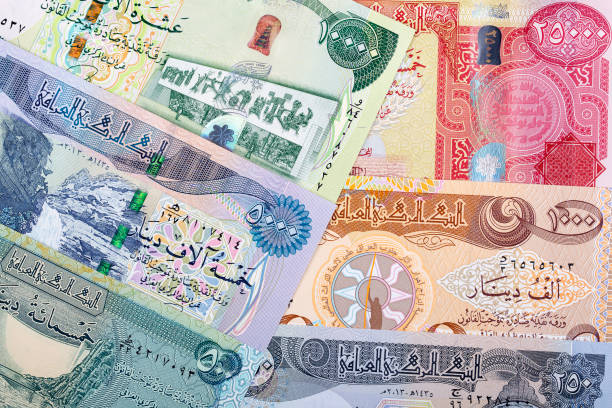Iraq’s money is in the hands of the Federal Reserve. When will the American shackles be broken?
 Despite more than a decade having passed since Iraq’s exit from Chapter 7, Iraqi oil revenues remain under the control of the US Federal Reserve, limiting Baghdad’s ability to freely manage its financial resources and directly impacting economic stability and the dinar’s exchange rate.
Despite more than a decade having passed since Iraq’s exit from Chapter 7, Iraqi oil revenues remain under the control of the US Federal Reserve, limiting Baghdad’s ability to freely manage its financial resources and directly impacting economic stability and the dinar’s exchange rate.
Long guardianship disrupts the economy
The continued US Federal Reserve’s custody of Iraq’s oil revenues is one of the main factors hampering the economy and deepening the dollar’s appreciation crisis.
Although Iraq fully fulfilled its obligations to Kuwait and moved from Chapter VII to Chapter VI, this problem remained unresolved.
In this context, Abbas al-Jubouri, director of the Al-Rafd Center for Media and Strategic Studies, told Al-Maalouma, “Iraq has exited Chapter 7 after fulfilling its commitments to Kuwait, and is now moving to the less severe Chapter 6. However, the Federal Reserve’s problem has remained unchanged, as it continues to control Iraqi oil revenues.”
Al-Jubouri added that “the lack of unity in the political decision-making process within the country, due to divisions and disagreements, has weakened Iraq’s position on lifting the US Federal Reserve’s mandate, and has kept this problem ongoing with no clear horizon for a solution.”
Parliamentary pressure and proposed solutions
For his part, Member of Parliament Firas Al-Maslamawi called on the government and Ministry of Finance to take strong action to pressure the US Federal Reserve to release more Iraqi funds held there, stressing that Iraq is not a poor country, but its financial resources are constrained.
Al-Maslamawi told Al-Maalouma, “Iraq’s funds are deposited with the US Federal Reserve, and they don’t provide it in proportion to the country’s needs, whether to secure employee salaries or finance projects.” He stressed that “the government is required to take urgent measures, including pressure to increase financial expenditures in dollars from our funds deposited there.”
He pointed out that “the funding and liquidity crisis can be overcome through practical alternatives, such as entering into agreements similar to ‘projects for oil,’ as in the Chinese experience, in addition to transferring employee salaries via MasterCard to control spending and reduce demand for dollars in the markets.”
Financial submission is no less dangerous than military presence.
In a related context, political observer Sabah Al-Akeili considered liberating Iraq’s finances from the dominance of the US Federal Reserve to be no less important than ending the US military presence in the country.
Al-Akeili told Al-Maalouma, “The recent agreement announced by the government regarding the withdrawal of US forces within a year lacks guarantees, as there has been no official confirmation from the US administration, which raises doubts about its seriousness.”
He pointed out that “the sudden shift in the Sudanese government’s position, from insisting on a full withdrawal by the end of 2027 to accepting only a one-year period, may be linked to considerations related to regional developments.”
He concluded by saying: “Even assuming the agreement on military withdrawal is valid, Iraq’s finances and economy will remain at the mercy of American political and financial will, given the Federal Reserve’s continued grip on Iraqi oil revenues.”
Almaalomah.me
